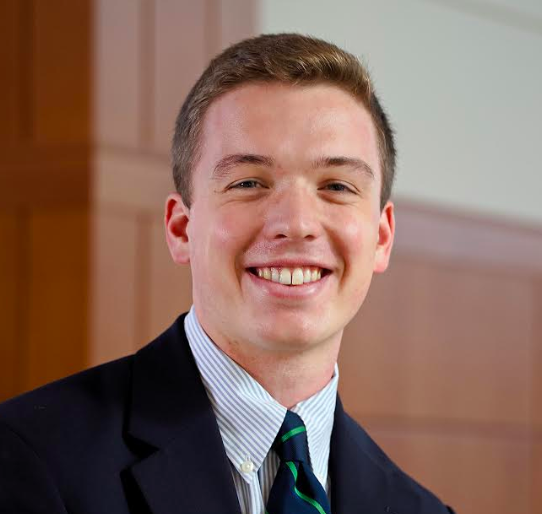The Week That Was: All of Lawfare in One Post
Let’s start with the special counsel investigation.
Emma Kohse and Benjamin Wittes explored the legal theory driving the special counsel’s indictment of Russian hackers and entities, arguing that the theory may offer insight into the special counsel’s next moves.
Published by The Lawfare Institute
in Cooperation With

Let’s start with the special counsel investigation.
Emma Kohse and Benjamin Wittes explored the legal theory driving the special counsel’s indictment of Russian hackers and entities, arguing that the theory may offer insight into the special counsel’s next moves.
David Kris suggested that we can view the special counsel’s indictment of the Internet Research Agency as an effort to use law enforcement as a counterintelligence tool.
In light of Sam Nunberg's threats to defy a subpoena from Mueller, Quinta Jurecic and Wittes revisited Susan McDougal’s failed attempt to defy Independent Counsel Kenneth Starr during the Whitewater investigation.
In broader news concerning law enforcement, Mieke Eoyang, Ben Freeman, and Wittes dissected the latest polling data on public confidence in government investigations of L'Affaire Russe.
Ben Berwick and Justin Florence argued that the administration’s attempts to interfere in the work of law enforcement violate the Constitution.
Jack Goldsmith highlighted a new collection of essays, Can It Happen Here? Authoritarianism in America, and his contribution to it, “Paradoxes of the Deep State.”
Haley Evans explained the practice of “swatting,” in which pranksters place fake emergency calls that bring law enforcement officials to an unsuspecting person’s home.
Scott Anderson flagged the impending release of a Trump administration report outlining the legal basis for its national security operations, noting that the transparency of the report will depend on the administration’s interpretation of the reporting requirement introduced in last year’s National Defense Authorization Act.
William Ford shared the livestream of and prepared testimony from the Senate Select Committee on Intelligence hearing on security clearance reform.
Robert Chesney and Steve Vladeck posted the National Security Law Podcast:
Ford shared the livestreams of and prepared testimonies from House and Senate Armed Services Committee hearings on national security challenges.
In this week’s Middle East Ticker, J. Dana Stuster discussed Syrian regime violence in Eastern Ghouta, Israeli Prime Minister Netanyahu’s meeting with President Trump in Washington, and the ongoing corruption investigation into Netanyahu.
Yuval Shany and Mordechai Kremnitzer suggested that two recent developments at the Israel Security Agency constitute progress towards eliminating illegal security interrogations.
Seamus Hughes dissected the unique case of Mohamed Elshinawy, the only American financed by the Islamic State to execute a terrorist attack on American soil.
Carol Saivetz scrutinized Russo-Turkish rapprochement, arguing that the countries cannot be characterized as “friends.”
Bruce Riedel argued that Saudi Crown Prince Mohammed bin Salman’s removal of the kingdom’s top military commanders suggests that he could be preparing for a new, heightened offensive in Yemen.
Scott Anderson and Molly Reynolds examined the procedural context of a joint resolution on Yemen introduced by a bipartisan contingent of senators and the implications of this context.
Robert Chesney dissected the most important disputes in Doe v. Mattis, arranged them in logical order, and offered his initial views on which arguments prove most persuasive.
Hilary Hurd covered new developments at the military commissions from Feb. 26-March 2.
In the lead-up to this week’s Cyber Command legal conference, Michael Adams and Megan Reiss shared important pieces of scholarship that could enhance conference discussions about international law, specifically the principles relevant to cyber operations that fall outside the realm of armed conflict.
Jeh Johnson shared the text of his speech at the Boston Conference on Cybersecurity.
Stewart Baker posted this week’s Cyberlaw Podcast, which included an interview with Shahar Avin and Miles Brundage.
David Stanton and Wenqing Zhao shared SinoTech, our new biweekly collation of developments related to China-U.S. technology law and policy.
Paul Rosenzweig observed that the delay of Qualcomm’s March 6 shareholders meeting marks a win for the American tech company in its ongoing struggle to avert a Broadcom takeover.
Garrett Hinck analyzed the Russian threat to undersea communications cable networks.
Ford shared the live streams of and prepared remarks from the House Homeland Security and Armed Services Committee hearings on cybersecurity and the military respectively.
Thomas Zeitzoff reviewed David Patrikarakos’s new book, “War in 140 Characters: How Social Media Is Reshaping Conflict in the Twenty-First Century.”
In response to Chinese President Xi Jinping’s impending constitutional amendment to abolish term limits for the presidency, Jerome Cohen argued that the amendment could create political instability within China. Taisu Zhang added that eliminating term limits will intensify the viciousness of succession politics and create serious long-term geopolitical and ideological instability.
Lawfare’s editors announced the next Hoover Book Soiree, set for March 13. Jack Goldsmith will interview Amy Chua about her new book, “Political Tribes: Group Instinct and the Fate of Nations.”
Matthew Kahn posted the Lawfare Podcast, a conversation with Zhanna Nesmtova on Boris Nemstov’s life and political legacy:
Shannon Togawa Mercer analyzed the new German CDU/CSU and SPD coalition government.
Anderson and Wittes shared the findings of American Oversight’s FOIA request concerning the State Department’s controversial “Winter White House” blog post.
Kahn posted another edition of the Lawfare Podcast, in which Wittes interviews Max Boot about Boot’s new book, “The Road Not Taken”:
And Wittes posted this week's episode of Rational Security, the "Ben Sucks and Also a Lot of News Happened" edition:
And that was the week that was.

